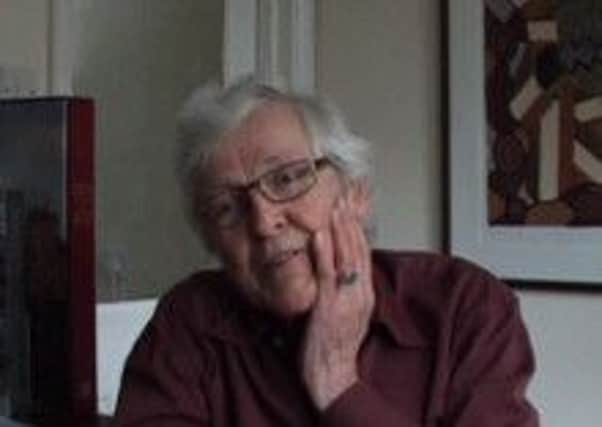Obituary: Brian Comport, film writer


Brian Comport scripted only a handful of films in the late 1960s and early 1970s, mainly offbeat horror films. They attracted little critical attention or box office excitement at the time, but over the years they took on a life of their own and acquired a cult following. Comport, who also worked with Edinburgh’s Traverse Theatre Company, lived long enough to see his work released on DVD, reach a new audience and be taken seriously by a generation of critics, many of whom were not born when the films came out in the cinema.
Coincidentally, one of his films, The Asphyx, was rereleased in digitally remastered form in Odeon Entertainment’s “Best of British Collection” just yesterday. Such is the popularity of The Asphyx that fans now discuss the relative merits of different versions of the film, just as they do with The Wicker Man.
Advertisement
Hide AdAdvertisement
Hide AdThe son of a journalist, Comport was born and grew up in south London. His interest in film was stimulated by one of his teachers and he entered the industry as a messenger with Rank, which was at the time a very significant producer and distributor in the UK.
He subsequently worked as a journalist for Reuters news agency and wrote poetry and short stories. In the mid-1960s, he was hired to write the script for a documentary film called The London Nobody Knows. It was based on a best-selling book by Geoffrey Fletcher and James Mason was lined up to do the voice-over narration.
It was reportedly Comport’s idea to have Mason on screen, walking and talking to the camera, which maximised the potential of the actor’s celebrity status and also gave the project a more personal touch. The tactic has become commonplace, but was novel at the time.
The film was less than an hour long, but proved popular as the bottom half in double bills, which were then the norm in British cinemas. The vast majority of short documentary films of the era have rightly been consigned to obscurity, but The London Nobody Knows has proven a valuable record of a London that no longer exists.
It was one of the most requested films for viewing at the British Film Institute and was released on DVD in 2008.
Following The London Nobody Knows, Comport was hired by Freddie Francis, an Oscar-winning cinematographer who also enjoyed a successful career as a director of horror films. Comport was commissioned to adapt a play by Maisie Mosco called The Happy Family, which was renamed Mumsy, Nanny, Sonny and Girly for cinema.
Ursula Howells, Pat Heywood, Howard Trevor and Vanessa Howard play characters who live together in a secluded mansion and indulge in a weird role-playing game, assuming the personae of the title. Sonny and Girly lure men back to the house who become part of the game or are killed. But New Friend (Michael Bryant) breaches the family’s united front when he has sex with Mumsy and Girly.
One scene, in which Mumsy hacks through a door with an axe, has prompted speculation that it may have influenced Stanley Kubrick on The Shining.
Advertisement
Hide AdAdvertisement
Hide AdFrancis regarded it as one of his best films, but it attracted moral outrage in sections of the British press and got only a limited cinema release in the UK in 1970, though it found an audience in the US, where it was released under the title Girly. It disappeared for years, but then bootleg videos started circulating, eventually leading to its official release on DVD.
Comport’s subsequent films have all benefited from critical reassessment in recent times. Man of Violence was an original story, a low-budget thriller, which has been recently released by the British Film Institute as part of its “Flipside” DVD collection – “rescuing weird and wonderful British films from obscurity”.
Comport returned to horror with The Fiend, starring Patrick Magee as the leader of a sinister religious sect, and The Asphyx, Comport’s own favourite, in which Robert Stephens is involved in Victorian experiments that seem to produce photographic evidence of the soul leaving the body … but in fact show not a departure but an arrival.
The Asphyx came out in 1973 and turned out to be the last of Comport’s screenplays to make it into production. He had already written the “book” for Pull Both Ends, a short-lived West End musical set in a Christmas cracker factory and starring Gerry Marsden from Gerry and the Pacemakers.
He returned to theatre with a play about a love triangle called Plat du Jour for the Traverse in 1973. He lived for a while in Australia, working as a journalist and on corporate videos, but latterly he had health problems and returned to live in Brixton. He was married and divorced four times and is survived by two children.